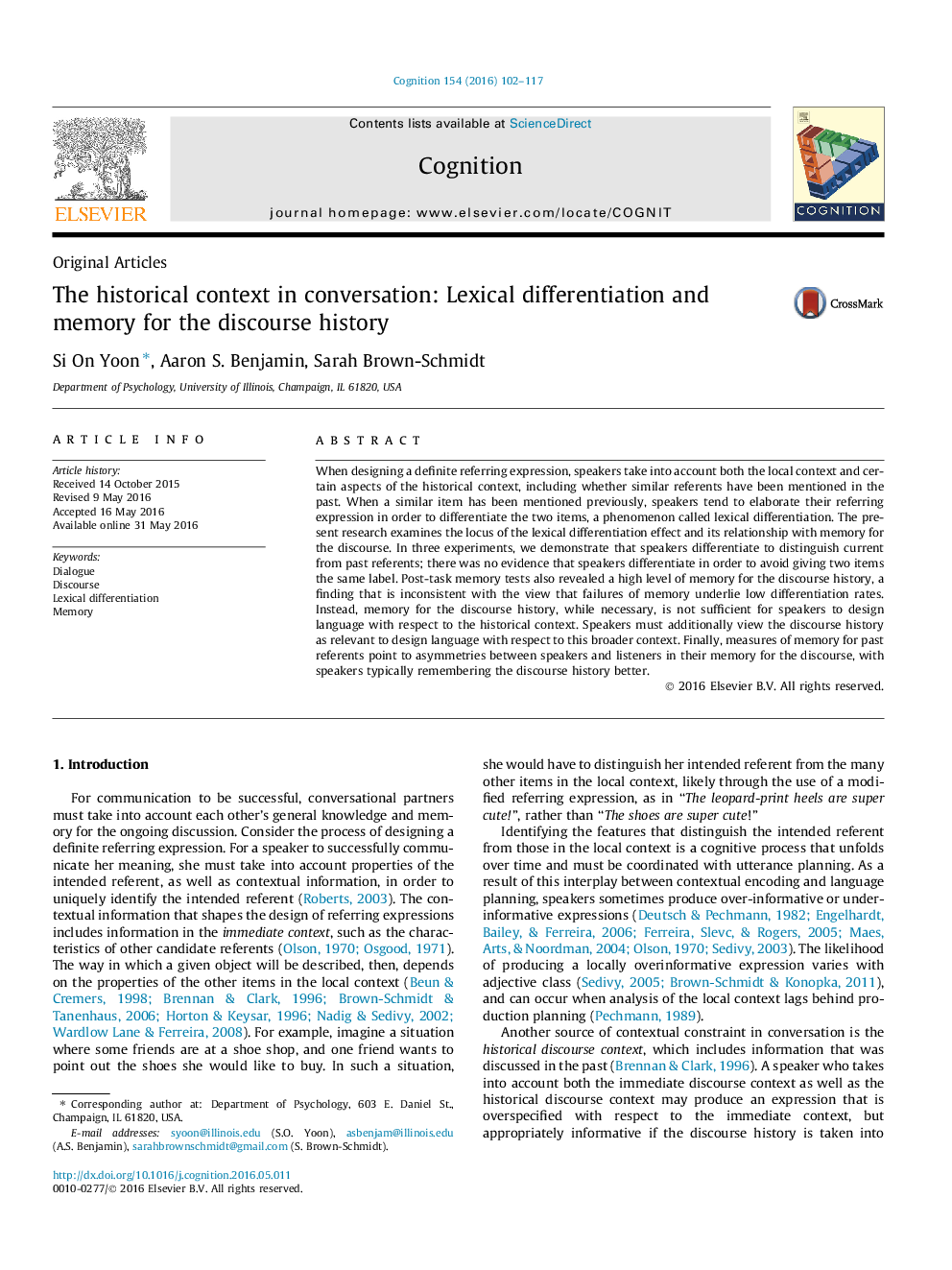| Article ID | Journal | Published Year | Pages | File Type |
|---|---|---|---|---|
| 7285915 | Cognition | 2016 | 16 Pages |
Abstract
When designing a definite referring expression, speakers take into account both the local context and certain aspects of the historical context, including whether similar referents have been mentioned in the past. When a similar item has been mentioned previously, speakers tend to elaborate their referring expression in order to differentiate the two items, a phenomenon called lexical differentiation. The present research examines the locus of the lexical differentiation effect and its relationship with memory for the discourse. In three experiments, we demonstrate that speakers differentiate to distinguish current from past referents; there was no evidence that speakers differentiate in order to avoid giving two items the same label. Post-task memory tests also revealed a high level of memory for the discourse history, a finding that is inconsistent with the view that failures of memory underlie low differentiation rates. Instead, memory for the discourse history, while necessary, is not sufficient for speakers to design language with respect to the historical context. Speakers must additionally view the discourse history as relevant to design language with respect to this broader context. Finally, measures of memory for past referents point to asymmetries between speakers and listeners in their memory for the discourse, with speakers typically remembering the discourse history better.
Related Topics
Life Sciences
Neuroscience
Cognitive Neuroscience
Authors
Si On Yoon, Aaron S. Benjamin, Sarah Brown-Schmidt,
